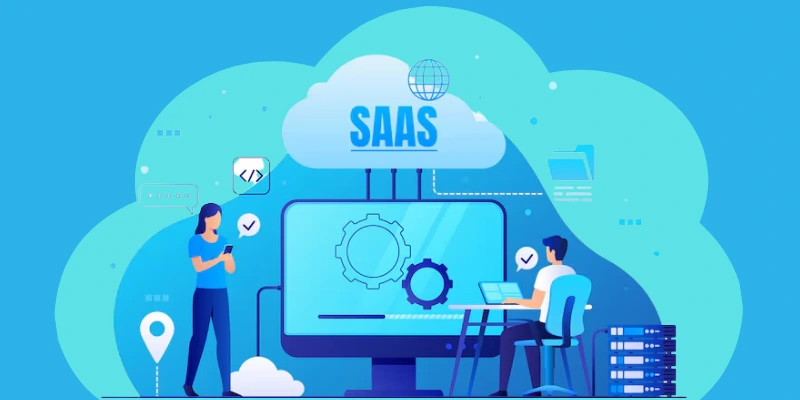Computer and software engineering fields are constantly shifting, with rapid innovations emerging at an incredible rate. Digital technologies continue to develop astonishingly; thus, software engineering is quickly growing into one where expertise is increasingly sought out while it holds endless possibilities. As our world constantly shifts, technology has become part of daily life. Software engineers are essential in designing innovative solutions, from phone applications to the complex systems that run businesses. Software engineering continues to expand amazingly, creating groundbreaking new trends and technologies every year.
This blog will discuss some of the key Trends In Software Development. From artificial intelligence and machine learning techniques, low-code programming techniques, and artificial intelligence to autonomous vehicles. All this is to see how each development shapes software engineering and what may portend for its future direction and importance within the industry.
What Exactly Is Software Engineering?
Software engineering is the application of the fundamental principles of engineering in the development, design testing, maintenance, and design of software-based products. The primary objective is the creation of software systems that perform well, are effective, reliable, and simple to manage. Software engineering requires a structured and organized process for developing software. It involves designs, analysis, programming, testing, and maintenance. Additionally, it involves applying numerous software development techniques and technology stacks (tech stack) to ensure that software development is completed quickly and efficiently while meeting the needs of the people who use it.
Software engineering is vital for companies in almost all industries since software plays a growing part in our lives. It is utilized across various applications, from essential mobile apps to more complex corporate software. Software Development Companies are in high demand and contribute to advancing innovative technologies that aid society's development.
The Evolution Of Software Engineering
The field of software engineering has dramatically changed as time passes, fueled by technological advancements and the changing demands of users. When it was first introduced to developing software, it was relatively simple, with a limited amount of complexity and fewer tools to use.
The demand for web-based software and mobile applications and the ability to scale cloud computing has created fresh challenges and new opportunities. Software engineers needed to adjust to this change by developing advanced skills and adopting different strategies and methods. Agile development methodologies like Scrum and Kanban became well-known frameworks for managing software projects. They emphasize collaborative development, iterative design, and flexibility.
Also Read: Detailed Guide On Software Maintenance Cost
The advent of open-source software also significantly influenced software engineering. Developers can now access an impressive library of libraries, frameworks, and tools to accelerate development processes. The open-source community encourages cooperation and sharing of knowledge, allowing software engineers to learn from one another and aid in the field's growth.
In recent years, software engineering has grown, as have DevOps methods. DevOps is a strategy to bridge the divide between the operations and development teams, encouraging cooperation, automation, and continuous release. This strategy has changed the way software is deployed, allowing for quicker releases and better security. Software engineering is expected to develop as new technology emerges. To stay ahead of the business, software developers must update themselves with the latest technologies and continually improve their capabilities.
Current Challenges Facing The Industry Of Software Engineering
While the Custom Software Development industry continuously evolves and improves, issues and inefficiencies remain. There are four major problems the industry of software engineering is facing today:
Time-To-market
The term "time to market" in software development refers to how long it takes to create and launch software. It's simply the time from the beginning of the idea before the finished product becomes available for consumers to purchase. Time-to-market importance in the current fast-paced world has increased because it will directly affect performance, particularly in the initial stage. When digital trends change, the issue often boils down to the company that releases demonstrations of its products before determining its performance in the digital market.
Technical Debt
It refers to the additional effort needed to update and maintain software or systems due to inadequate or insufficient development methods and preliminary architectural plans. It's similar to financial debt in that it accumulates an interest rate over time and could significantly burden companies that develop software if not addressed.
Also Read: Software Development Cost Estimation Process
Suppose a software development firm needs to correct a mistake, like failing to test performance, considering long-term scaling, or simply launching the software at the right time. In that case, those techniques will undoubtedly result in the creation of technical debt. The issue of technical debt is among the significant reasons that older software applications are so frustrating to deal with.
With the app's popularity, companies may realize the need for certain features to be included as soon as possible. But, due to the tech debt, implementing these adjustments could take a long time and effort. It could be a challenge to comprehend or alter, and there could be issues with compatibility or scaling. These issues greatly limit the ability of companies in the field of technology to adapt and be flexible.
Privacy Issues
The amount of private customer information companies collect from users across different industries is overwhelming due to digital technology's rapid evolution and the widespread usage of laptops, smartphones, and various connected devices. Companies now utilize vast quantities of personal details about individuals to customize products and content and maximize revenue generation. There's an additional aspect to this story: all this extremely sensitive data makes people less confident in businesses operating on the web. Additionally, privacy issues are amplified due to US and EU laws. Software developers make huge efforts to deal with any privacy issues that might arise.
A Shortage Of Talent
The talent shortage is viewed as a significant issue in the current Development Of Custom Software market due to the huge demand for software developers with a high level of expertise and the shortage of skilled candidates. Don't get us wrong. Many middle—and junior-level developers are on the market; however, software companies are seeking more experienced senior developers.
Also Read: Exploring Software Development Outsourcing Trends
With the rapid rate of technological advances and the growing use of software in different industries, the need for skills in software development has increased significantly over the last few years. Yet, the availability of experienced software developers hasn't kept up with this need, resulting in a lack of skilled workers.
How Important It Is To Stay Up-To-Date In Line With Trends
Staying current with current developments is essential for software developers to remain up-to-date in an ever-changing field. They can leverage the latest technologies, methods, and software to create modern software applications. Software engineering is a subject that is constantly evolving as new advancements and trends appear at an accelerated pace. Being aware of these developments isn't just advantageous but also essential for engineers in the field to stay at the top of their game in today's job market.
Also Read: Advantages of Hiring a Dedicated Software Development Team
One of the main reasons for staying current on the latest trends is that it allows software developers to make well-informed decisions. Also to select the best techniques and software for their work and make Enterprise Software Performs. As various new frameworks, programming languages, and libraries emerge frequently, software engineers must stay current with these developments to ensure they're employing the most efficient and productive instruments available.
Top Technology Trends In Software Engineering 2024
A variety of trends are changing the landscape of software engineering. They are changing how software is designed, developed, deployed, and maintained. These trends will likely change how the software industry develops in the near future. Apart from the trending areas mentioned earlier, there are a number of additional significant trends worth examining.
Low-Code Development Opens New Opportunities
One of the biggest technological trends for 2024 will be low-code development. Utilizing a low-code development platform (LCDP) is an easy route to creating technical debt, regaining data ownership, and then being locked into a lock-in with a vendor. Your concerns may be legitimate, but there's a different alternative: open-source, low-code solutions. The platforms allow developers to create robust, flexible, and safe SaaS applications quicker and more efficiently. And all while maintaining full responsibility for their code.
The Rise Of Artificial Intelligence And Machine Learning
Artificial Intelligence (AI) and Machine Learning (ML) are becoming more prominent in various industries, including software engineering. AI-based solutions can automate repetitive tasks, study vast amounts of information, and make intelligent decisions. Machine learning algorithms boost software performance, optimize resource allocation, and enhance the user experience.
AI and ML are utilized in healthcare to create predictive models that detect possible diseases and recommend specific treatment strategies. In the finance sector, AI-powered chatbots assist customers and speed up payments.
The Shift Towards Remote Work And Cloud-Based Systems
The worldwide pandemic has led to the use of remote working, resulting in a rise in cloud-based platforms. Software engineers are creating apps that allow remote collaboration, data security storage, and seamless integration to cloud platforms. Cloud computing is a scalable platform that enables software engineers to design scalable and reliable solutions.
Also Read: Complete Guide On Software Development Life Cycle
Cloud-based development platforms allow software engineers to complete projects in any location, communicate on projects with teammates in real-time, and gain access to the resources they require on demand. The shift to remote working and cloud-based platforms has resulted in the creation of new technologies and tools that facilitate virtual meetings, code sharing, and control of versions. Additionally, using cloud-based platforms allows for effective use of resources and cost optimization. Software developers can use cloud-based services to expand their apps based on demands, which reduces infrastructure costs and enhances overall performance.
The Growing Importance Of Cybersecurity
As more people depend on the digital age, security has become the top priority for businesses. When software developers develop advanced software, they must prioritize security precautions. Robust security protocols protect critical data, such as encryption and vulnerability scans.
Additionally, the emergence of IoT (Internet of Things) devices has created new security issues. Software engineers are currently working on creating safe protocols and frameworks that secure IoT devices from security threats. This involves implementing secured communication channels, authentication methods, and regularly scheduled software updates to fix vulnerabilities.
The Development Of Design Thinking
Innovation is vital. However, software engineers must be able to align new products and services to provide a positive user experience if you're developing mobile applications such as web interfaces or even automated software. You must ensure a smooth customer experience and build long-lasting relations, which are among the most critical factors for successful Enterprise Software Development. This ability to match the business's and user's objectives is crucial for every ambitious software engineer. The Master of Software Engineering takes this user-centric approach and offers practical assignments that let you test your skills in dealing with real-world problems in real-world settings.
The Potential Of Quantum Computing
Quantum computing has enormous potential to tackle complex challenges beyond conventional computers' abilities. Software engineers must become familiar with quantum algorithms and acquire the necessary skills to tap into this groundbreaking technology's potential.
Quantum computing will allow software engineering experts to deal with computationally complex jobs like optimization, cryptography, and simulations at an unprecedented speed and effectiveness rate. This could open opportunities for businesses like healthcare, finance, and logistics. Additionally, advancing quantum-based programming languages and tools will allow software engineers to develop quantum algorithms faster. Since quantum computing is becoming more readily available, software engineers must modify their approach to solving problems and algorithms to benefit entirely from the technology.
Sustainable Engineering
The movement for sustainable or green software results from the real-world effects of digitalization and the shift toward cloud computing in the real world. Software engineering is green and multidisciplinary, drawing information from different fields to encourage sustainable development. It is based on guidelines to be followed when creating eco-friendly software with the ultimate goal of implementing modifications to the architecture and code, which reduce energy consumption and carbon emissions from the software. A master's degree in software engineering will allow you to earn another sustainability certificate. This will bring you up to the level with developments that lead to more sustainable solutions for this industry.
The Impact of 5G On Software Engineering
5G technology is expected to create a new world of connectivity. When software engineers do Mobile Application Development that will be part of the 5G environment, they must ensure that they are optimized for lower latency, high speed, and seamless integration with the latest technologies. Through 5G, software developers can develop new applications requiring real-time data processing and ultra-fast communications.
Technology can lead to advances in fields such as self-driving vehicles, remote surgery, and smart cities. Software engineers should also be cognizant of the issues associated with 5G technology, including network complexity and security risks. Keeping up with the newest 5G standards and protocols is essential to ensure their software is secure and reliable. In addition, as demands for 5G-enabled apps increase, Software engineers must improve their software and algorithms to increase effectiveness and reduce the amount of resources consumed.
The Impact Of Trends On Software Development
The latest trends in software engineering influence software development. They affect the selection of frameworks, programming languages, libraries, and emerging methodologies, such as Agile or DevOps.
For example, the emergence of Agile methods has transformed software development, fostering flexibility, collaboration, and iterative design. If software developers keep up-to-date with this new trend, they can implement Agile methods and reap the benefits of quicker development times, better communication, and improved customer satisfaction.
In the same way, DevOps changes how software is created, used, and tended. Suppose you keep current in this direction. In that case, software developers can streamline their development process, simplify the collaboration between operations and development teams, and ensure quicker and more secure software updates.
How Trends Shape The Future Of Software Engineering
Software engineering is constantly changing due to technological advancements and emerging market requirements. When they know and accept the latest trends, software engineers can be at the cutting edge of technological advancement. They can use patterns to build more efficient software development pipelines, propel digital transformation, and define the future direction of the software sector.
Developing new technology is one of the main techniques that influence the next direction of engineering software. For example, Artificial Intelligence Solutions and machine learning have allowed software engineers to develop automated and intelligent technology. If they keep up-to-date with the latest developments, software engineers will develop the required abilities and know-how to apply these advanced technologies and contribute to their advancement.
Along with the latest technology, the latest trends are shaping the next direction of engineering software by altering the ways software is designed and developed. In particular, the shift to cloud computing has transformed how software is distributed and utilized. To keep up to date on this development, software engineers will be able to learn how to create cloud-based apps that take advantage of the scale and flexibility of cloud computing platforms.
In addition, staying current on developments allows software engineers to identify future market needs and adjust their abilities accordingly. By analyzing users' demands and preferences, software engineers can create applications that satisfy these needs and stay one step ahead of competitors.
Conclusion
The software development industry changes and evolves constantly. Tools, technologies, and methodologies are introduced and removed as companies strive to develop more efficient, quicker, and superior software applications and Progressive Web App Development Services. The software engineering field is continuously developing. By embracing and understanding the most recent developments, software engineers can influence the future of the field, encourage innovation, and create modern software products. Staying up-to-date with the latest trends, acquiring new abilities, and cultivating a culture of continual learning is vital for success in this constantly changing field.













Share this blog